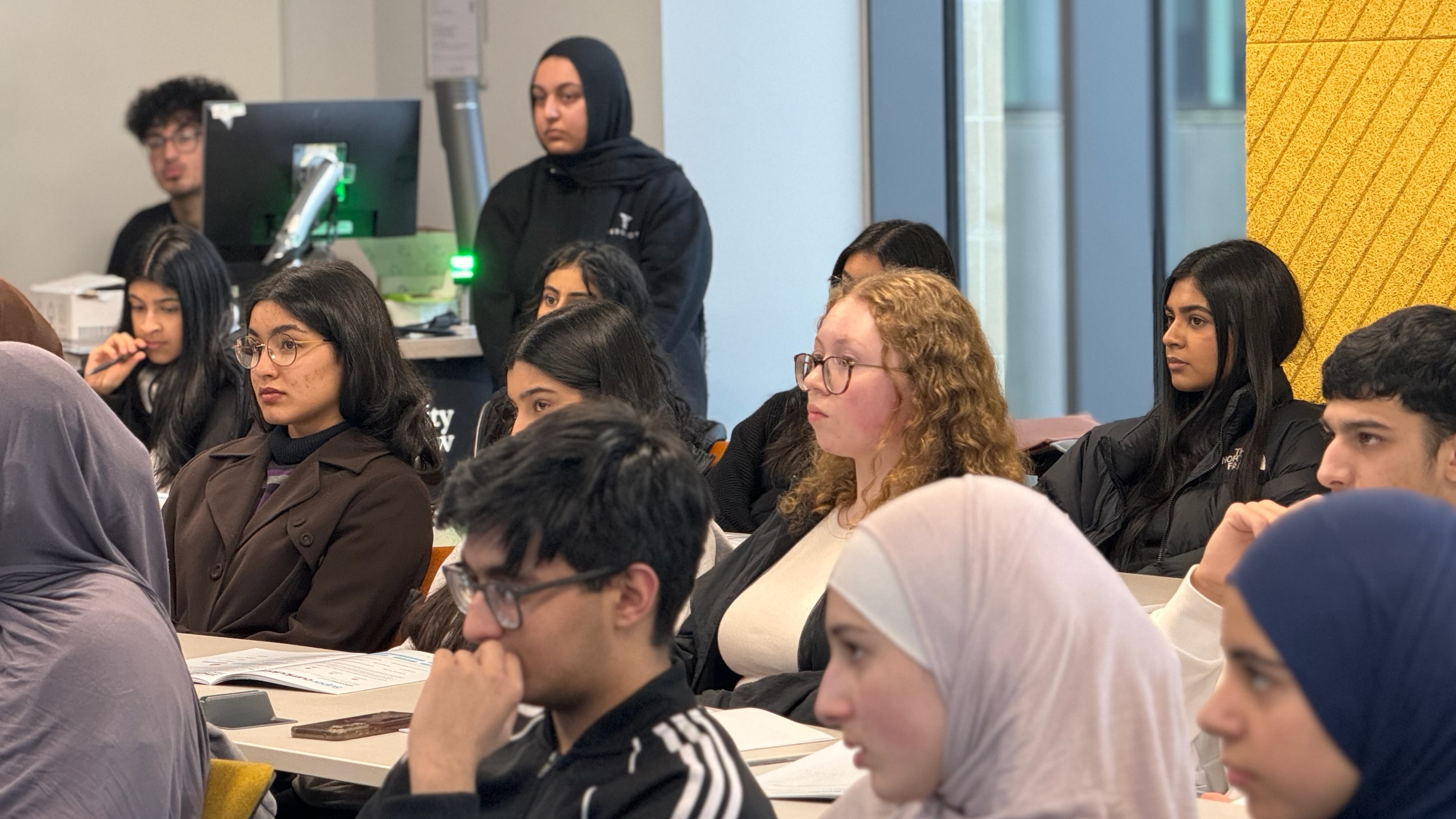Starting medical school can be overwhelming. Learn 7 practical tips from Zaynah, for thriving during your pre-clinical years, from managing workloads and building friendships to effective study methods and self-care.

Starting medical school can be overwhelming. Learn 7 practical tips from Zaynah, for thriving during your pre-clinical years, from managing workloads and building friendships to effective study methods and self-care.
By Zaynah Nawaz (Aston Medical School)
The first two years of medical school can feel like a mountain to climb. Here are seven key lessons to help you survive and thrive.
These years are unique — make the most of them. Explore life outside medicine and embrace the full university experience.
Try to:
These will become some of your fondest memories.
The curriculum is information-dense. Focus on the bigger picture rather than memorising every detail.
Tips:
Remember why you chose medicine — the tough days are just hurdles to overcome.
Falling behind is normal, but organisation is your lifeline.
Strategies:
Organisation helps reduce stress and keeps you on track.
There is no one-size-fits-all approach. Experiment to find what works best.
Suggestions:
Build a solid foundation to prepare for clinical years.
Structure and balance are essential during exams.
Advice:
Productivity is about quality, not hours spent studying.
Friendships make medical school bearable and memorable.
Look for friends who:
A strong peer network is vital for both academic and personal wellbeing.
Rest is essential for balance and sanity.
Tips:
Medicine is a marathon, not a sprint — pacing yourself is key.
Final Thoughts
Pre-clinical years are challenging but rewarding. With organisation, a good support system, and self-awareness, you can thrive academically and personally. Find your people, take breaks, and embrace the journey — one day you’ll look back and laugh at your first-week anxieties.
Q1: How can I make the most of my pre-clinical years?
A: Enjoy them! These first two years are your only “traditional university experience.” Join societies, meet new people, go on trips, and explore activities outside medicine. These experiences create lifelong memories beyond lectures.
Q2: What’s the best way to manage the heavy workload?
A: Organisation is key. Batch lectures, colour-code your timetable, set daily micro-goals, and use post-it notes for mnemonics and reminders. Staying on top prevents overwhelm and allows sustainable progress.
Q3: How should I revise effectively for pre-clinical exams?
A: Find your own revision style — try Anki, flashcards, blurting, or mind maps. Combine methods to retain knowledge better, focus on active recall, and remember: it’s about understanding, not memorising everything.
Q4: How important is social support in medical school?
A: Very. Build a study group or find friends who get the journey. Celebrate small wins together, share study breaks, and support each other through tough days — it makes the experience more enjoyable and manageable.
Q5: Should I take days off, and how?
A: Yes — rest is essential. Schedule at least one day per week to recharge, engage in hobbies, exercise, or spend time with friends and family. Balance is critical for maintaining mental health and productivity.

Starting medical school can be overwhelming. Learn 7 practical tips from Zaynah, for thriving during your pre-clinical years, from managing workloads and building friendships to effective study methods and self-care.

Learn when and how to ask consultants questions, build trust, and approach mentorship with confidence and humility as a medical or dental student.

Soha shares why a foundation year isn’t falling behind - it’s a head start. Discover how the extra year builds confidence, strong study habits, and opens new pathways into Medicine or Dentistry.
Be a part of our community and never miss an update! Oh and, sign up for our newsletter – essential insights, zero fluff.
We'll leave no stone unturned!
Be reminded about every single event
{
"@context": "https://schema.org",
"@type": "BlogPosting",
"headline": "Pre-Clinical Medical School Survival Guide: 7 Tips from a Student",
"alternativeHeadline": "How to Thrive During Your Pre-Clinical Medical School Years",
"image": "https://yourdomain.com/images/preclinical-survival-guide.jpg",
"author": {
"@type": "Person",
"name": "Current Medical Student"
},
"editor": "University Student Blog",
"genre": "Medical Education, Student Life, Pre-Clinical Tips",
"keywords": "pre-clinical medical school, study tips, medical student survival, organisation, revision strategies, work-life balance",
"wordcount": "1020",
"publisher": {
"@type": "Organization",
"name": "University Medical Blog",
"logo": {
"@type": "ImageObject",
"url": "https://yourdomain.com/images/university-logo.png"
}
},
"url": "https://yourdomain.com/preclinical-medical-school-survival-guide",
"mainEntityOfPage": {
"@type": "WebPage",
"@id": "https://yourdomain.com/preclinical-medical-school-survival-guide"
},
"datePublished": "2025-09-24",
"dateModified": "2025-09-24",
"description": "Starting medical school can be overwhelming. Learn 7 practical tips for thriving during your pre-clinical years, from managing workloads and building friendships to effective study methods and self-care.",
"inLanguage": "en-GB"
}
{
"@context": "https://schema.org",
"@type": "FAQPage",
"mainEntity": [
{
"@type": "Question",
"name": "How can I make the most of my pre-clinical years?",
"acceptedAnswer": {
"@type": "Answer",
"text": "Enjoy them! These first two years are your only “traditional university experience.” Join societies, meet new people, go on trips, and explore activities outside medicine. These experiences create lifelong memories beyond lectures."
}
},
{
"@type": "Question",
"name": "What’s the best way to manage the heavy workload?",
"acceptedAnswer": {
"@type": "Answer",
"text": "Organisation is key. Batch lectures, colour-code your timetable, set daily micro-goals, and use post-it notes for mnemonics and reminders. Staying on top prevents overwhelm and allows sustainable progress."
}
},
{
"@type": "Question",
"name": "How should I revise effectively for pre-clinical exams?",
"acceptedAnswer": {
"@type": "Answer",
"text": "Find your own revision style — try Anki, flashcards, blurting, or mind maps. Combine methods to retain knowledge better, focus on active recall, and remember: it’s about understanding, not memorising everything."
}
},
{
"@type": "Question",
"name": "How important is social support in medical school?",
"acceptedAnswer": {
"@type": "Answer",
"text": "Very. Build a study group or find friends who get the journey. Celebrate small wins together, share study breaks, and support each other through tough days — it makes the experience more enjoyable and manageable."
}
},
{
"@type": "Question",
"name": "Should I take days off, and how?",
"acceptedAnswer": {
"@type": "Answer",
"text": "Yes — rest is essential. Schedule at least one day per week to recharge, engage in hobbies, exercise, or spend time with friends and family. Balance is critical for maintaining mental health and productivity."
}
}
]
}